




The purpose of safeguarding legislation and policies includes:
Pwrpas deddfwriaeth a pholisïau diogelu, ymhlith eraill, yw:
What rights have you got?
Compare your ideas in your groups.
Pa hawliau sydd gennych chi?
Cymharwch eich syniadau yn eich grwpiau.

Safeguarding provision is set out in the following legislation and policies:
Mae’r ddarpariaeth diogelu wedi’i chynnwys yn y ddeddfwriaeth a’r polisïau canlynol:
Hint 2: Lorem ipsum dolor sit amet, consectetur adipisicing elit. Modi est praesentium earum exercitationem, accusantium molestiae asperiores reiciendis aliquam doloribus, delectus, cumque odio omnis rem, aliquid et. Quisquam eius, incidunt ab.
Awgrymiadau 2: Lorem ipsum dolor sit amet, consectetur adipisicing elit. Modi est praesentium earum exercitationem, accusantium molestiae asperiores reiciendis aliquam doloribus, delectus, cumque odio omnis rem, aliquid et. Quisquam eius, incidunt ab.
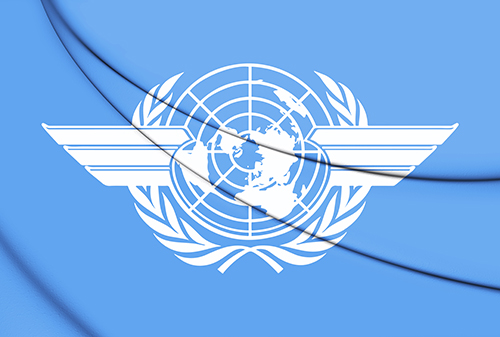
The following articles from the United Nations Convention on the Rights of the Child 1989 show the provision for safeguarding:
The Convention applies to every child without discrimination, whatever their ethnicity, gender, religion, language, abilities or any other status, whatever they think or say, whatever their family background.
The best interests of the child must be a top priority in all decisions and actions that affect children.
Every child has the right to life. Governments must do all they can to ensure that children survive and develop to their full potential.
Children must not be separated from their parents against their will unless it is in their best interests (for example, if a parent is hurting or neglecting a child). Children whose parents have separated have the right to stay in contact with both parents, unless this could cause them harm.
Every child has the right to express their views, feelings and wishes in all matters affecting them, and to have their views considered and taken seriously. This right applies at all times, for example during immigration proceedings, housing decisions or the child’s day-to-day home life.
Every child has the right to meet with other children and to join groups and organisations, as long as this does not stop other people from enjoying their rights.
Every child has the right to privacy. The law should protect the child’s private, family and home life, including protecting children from unlawful attacks that harm their reputation.
Governments must do all they can to ensure that children are protected from all forms of violence, abuse, neglect and bad treatment by their parents or anyone else who looks after them.
Mae'r erthyglau canlynol o Gonfensiwn y Cenhedloedd Unedig ar Hawliau'r Plentyn 1989 yn dangos y ddarpariaeth ar gyfer diogelu:
Mae’r Confensiwn yn cynnwys pob plentyn heb wahaniaethu, beth bynnag yw ei ethnigrwydd, ei ryw, ei grefydd, ei iaith, ei allu neu unrhyw statws arall, beth bynnag yw ei farn, beth bynnag mae’n ei ddweud, beth bynnag yw ei gefndir teuluol.
Rhaid i les pennaf y plentyn fod yn brif ystyriaeth ym mhob penderfyniad a gweithred sy'n effeithio ar blant.
Mae gan bob plentyn yr hawl i fyw. Rhaid i lywodraethau wneud popeth o fewn eu gallu i sicrhau bod plant yn goroesi ac yn datblygu i'w potensial llawn.
Ni ddylai plant gael eu gwahanu oddi wrth eu rhieni yn erbyn eu hewyllys oni bai fod hynny er lles pennaf y plentyn (er enghraifft, os yw rhiant yn achosi niwed i blentyn neu yn ei esgeuluso). Os yw rhieni plentyn wedi gwahanu, mae gan y plentyn hwnnw yr hawl i gadw mewn cysylltiad â’r ddau riant, oni bai y gallai hyn achosi niwed iddo.
Mae gan bob plentyn yr hawl i fynegi ei safbwyntiau, ei deimladau a’i ddymuniadau ar bob mater sy’n effeithio arno, ac i ddisgwyl bod eraill yn ystyried y safbwyntiau hynny ac yn eu cymryd o ddifrif. Mae’r hawl hon yn berthnasol bob amser, er enghraifft yn ystod achosion mewnfudo, penderfyniadau yn ymwneud â thai neu fywyd cartref pob dydd y plentyn.
Mae gan bob plentyn yr hawl i gyfarfod plant eraill ac i ymuno â grwpiau a mudiadau, ar yr amod nad yw hyn yn atal pobl eraill rhag mwynhau eu hawliau.
Mae gan bob plentyn yr hawl i breifatrwydd. Dylai'r gyfraith amddiffyn bywyd preifat, teuluol a chartref y plentyn, gan gynnwys amddiffyn plant rhag ymosodiadau anghyfreithlon sy'n gwneud drwg i'w henw da.
Rhaid i lywodraethau wneud popeth o fewn eu gallu i sicrhau bod plant yn cael eu hamddiffyn rhag pob math o drais, camdriniaeth, esgeuluster a thriniaeth wael gan eu rheini neu unrhyw un arall sy'n gofalu amdanyn nhw.
Hint 3: Lorem ipsum dolor sit amet, consectetur adipisicing elit. Modi est praesentium earum exercitationem, accusantium molestiae asperiores reiciendis aliquam doloribus, delectus, cumque odio omnis rem, aliquid et. Quisquam eius, incidunt ab.
Awgrymiadau 3: Lorem ipsum dolor sit amet, consectetur adipisicing elit. Modi est praesentium earum exercitationem, accusantium molestiae asperiores reiciendis aliquam doloribus, delectus, cumque odio omnis rem, aliquid et. Quisquam eius, incidunt ab.

If a child cannot be looked after by their immediate family, the government must give them special protection and assistance. This includes making sure the child is provided with alternative care that is continuous and respects the child’s culture, language and religion.
A child with a disability has the right to live a full and decent life with dignity and, as far as possible, independence and to play an active part in the community. Governments must do all they can to support disabled children and their families.
Every child has the right to the best possible health. Governments must provide good quality health care, clean water, nutritious food, and a clean environment and education on health and well-being so that children can stay healthy. Richer countries must help poorer countries achieve this.
Governments must protect children from economic exploitation and work that is dangerous or might harm their health, development or education. Governments must set a minimum age for children to work and ensure that work conditions are safe and appropriate.
Governments must protect children from all forms of sexual abuse and exploitation.
Governments must protect children from being abducted, sold or moved illegally to a different place in or outside their country for the purpose of exploitation.
Governments must protect children from all other forms of exploitation, for example the exploitation of children for political activities, by the media or for medical research.
Children who have experienced neglect, abuse, exploitation, torture or who are victims of war must receive special support to help them recover their health, dignity, self-respect and social life.
Further reading: https://bit.ly/2Dmpaq0
Os nad yw teulu agos plentyn yn gallu gofalu amdano, rhaid i'r llywodraeth gynnig amddiffyniad a chymorth arbennig iddo. Mae hyn yn cynnwys gwneud yn siŵr bod y plentyn yn derbyn gofal arall sy'n barhaus ac sy'n parchu diwylliant, iaith a chrefydd y plentyn.
Mae gan blentyn ag anabledd yr hawl i fyw bywyd llawn a gweddus gydag urddas a, chyn belled ag y bo'n bosibl, annibyniaeth ac i chwarae rhan weithgar yn y gymuned. Rhaid i lywodraethau wneud popeth o fewn eu gallu i gynorthwyo plant anabl a'u teuluoedd.
Mae gan bob plentyn yr hawl i fwynhau iechyd o'r safon uchaf posibl. Rhaid i lywodraethau ddarparu gofal iechyd o ansawdd da, dŵr glân, bwyd maethlon, ac amgylchedd glân ac addysg ar iechyd a llesiant er mwyn i blant gadw'n iach. Rhaid i wledydd mwy cyfoethog helpu gwledydd tlotach i wireddu hyn.
Rhaid i lywodraethau amddiffyn plant rhag cael eu hecsbloetio'n economaidd a chyflawni gwaith sy'n beryglus neu a allai niweidio eu hiechyd, datblygiad neu addysg. Rhaid i lywodraethau bennu lleiafswm oedran er mwyn i blant weithio a sicrhau bod amodau gwaith yn ddiogel ac yn addas.
Rhaid i lywodraethau amddiffyn plant rhag pob math o gam-drin a chamfanteisio rhywiol.
Rhaid i lywodraethau amddiffyn plant rhag cael eu herwgydio, eu gwerthu neu eu symud yn anghyfreithlon i le gwahanol o fewn neu y tu hwnt i'w gwlad at ddibenion camfanteisio.
Rhaid i lywodraethau amddiffyn plant rhag pob math arall o gamfanteisio, er enghraifft camfanteisio ar blant er mwyn gweithgareddau gwleidyddol, gan y cyfryngau neu ar gyfer ymchwil meddygol.
Rhaid i blant sydd wedi dioddef esgeuluster, camdriniaeth, camfanteisio, arteithio neu sydd wedi dioddef oherwydd rhyfel, dderbyn cymorth arbennig i'w helpu i adfer eu hiechyd, urddas, hunanbarch a bywyd cymdeithasol.
Darllen pellach: https://bit.ly/2Dmpaq0
Hint 4: Lorem ipsum dolor sit amet, consectetur adipisicing elit. Modi est praesentium earum exercitationem, accusantium molestiae asperiores reiciendis aliquam doloribus, delectus, cumque odio omnis rem, aliquid et. Quisquam eius, incidunt ab.
Awgrymiadau 4: Lorem ipsum dolor sit amet, consectetur adipisicing elit. Modi est praesentium earum exercitationem, accusantium molestiae asperiores reiciendis aliquam doloribus, delectus, cumque odio omnis rem, aliquid et. Quisquam eius, incidunt ab.
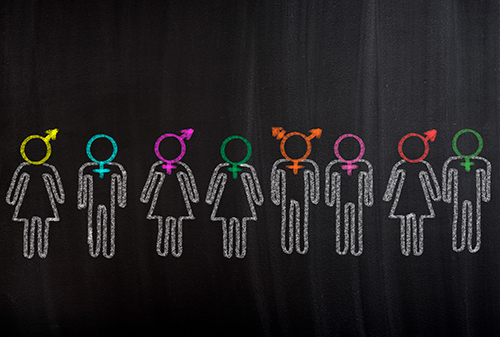
The Human Rights Act 1998 sets out an individual’s human rights in a series of ‘Articles’.
Each Article deals with a different right.
These are all taken from the ECHR and are commonly known as ‘the Convention Rights’:
Mae Deddf Hawliau Dynol 1998 yn rhestru hawliau dynol unigolyn mewn cyfres o ‘Erthyglau’.
Mae pob Erthygl yn delio â hawl wahanol.
Mae’r rhain i gyd yn dod o’r ECHR ac yn cael eu galw’n ‘Hawliau’r Confensiwn’ fel arfer:
Hint 5: Lorem ipsum dolor sit amet, consectetur adipisicing elit. Modi est praesentium earum exercitationem, accusantium molestiae asperiores reiciendis aliquam doloribus, delectus, cumque odio omnis rem, aliquid et. Quisquam eius, incidunt ab.
Awgrymiadau 5: Lorem ipsum dolor sit amet, consectetur adipisicing elit. Modi est praesentium earum exercitationem, accusantium molestiae asperiores reiciendis aliquam doloribus, delectus, cumque odio omnis rem, aliquid et. Quisquam eius, incidunt ab.
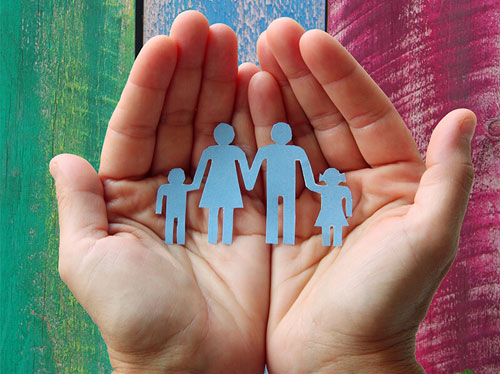
The Children Act 1989 provides a comprehensive framework for the care and protection of children. It focuses on the welfare of children up to their 18th birthday.
It defines parental responsibility and encourages partnership working with parents and multi-agency co-operation.
The welfare checklist in the Children Act 1989 consists of seven statutory criteria that the courts must consider when reaching its decision in cases involving children.
The seven criteria set out in the welfare checklist under s1(3) Children Act 1989 are:
https://www.inbrief.co.uk/child-law/child-welfare-checklist/
Mae Deddf Plant 1989 yn darparu fframwaith cynhwysfawr ar gyfer amddiffyn plant a gofalu amdanyn nhw. Mae'n canolbwyntio ar les plant hyd at eu pen-blwydd yn 18 oed.
Mae'n diffinio cyfrifoldeb rhieni ac yn annog gweithio mewn partneriaeth gyda rhieni a chydweithio amlasiantaethol.
Mae’r rhestr wirio lles yn Neddf Plant 1989 yn cynnwys saith maen prawf statudol mae’n rhaid i’r llysoedd eu hystyried wrth wneud penderfyniadau ar achosion sy’n ymwneud â phlant.
Y saith maen prawf a nodir yn y rhestr wirio llesiant o dan a1(3) Deddf Plant 1989 yw:
https://www.inbrief.co.uk/child-law/child-welfare-checklist/
Hint 6: Lorem ipsum dolor sit amet, consectetur adipisicing elit. Modi est praesentium earum exercitationem, accusantium molestiae asperiores reiciendis aliquam doloribus, delectus, cumque odio omnis rem, aliquid et. Quisquam eius, incidunt ab.
Awgrymiadau 6: Lorem ipsum dolor sit amet, consectetur adipisicing elit. Modi est praesentium earum exercitationem, accusantium molestiae asperiores reiciendis aliquam doloribus, delectus, cumque odio omnis rem, aliquid et. Quisquam eius, incidunt ab.
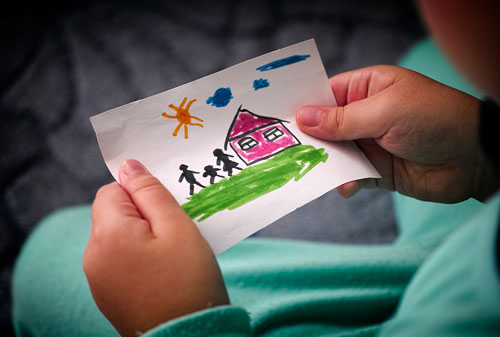
The Children Act 2004 does not replace or even amend much of the Children Act 1989. It covers England and Wales separately.
It aims to identify needs and provide early intervention and provide for the Joint Assessment Framework.
Based on the Act, the Welsh Government has adopted seven core aims through which it will work to ensure that all children and young people:
Nid yw Deddf Plant 2004 yn disodli Deddf Plant 1989 na hyd yn oed yn newid llawer arni. Mae’n ymdrin â Chymru a Lloegr ar wahân.
Ei nod yw nodi anghenion ac ymyrryd yn gynnar, a darparu ar gyfer y Fframwaith Asesu ar y Cyd.
Ar sail y Ddeddf, mae Llywodraeth Cymru wedi mabwysiadu Saith Nod Craidd ar gyfer pob plentyn ac unigolyn ifanc er mwyn:
Hint 7: Lorem ipsum dolor sit amet, consectetur adipisicing elit. Modi est praesentium earum exercitationem, accusantium molestiae asperiores reiciendis aliquam doloribus, delectus, cumque odio omnis rem, aliquid et. Quisquam eius, incidunt ab.
Awgrymiadau 7: Lorem ipsum dolor sit amet, consectetur adipisicing elit. Modi est praesentium earum exercitationem, accusantium molestiae asperiores reiciendis aliquam doloribus, delectus, cumque odio omnis rem, aliquid et. Quisquam eius, incidunt ab.
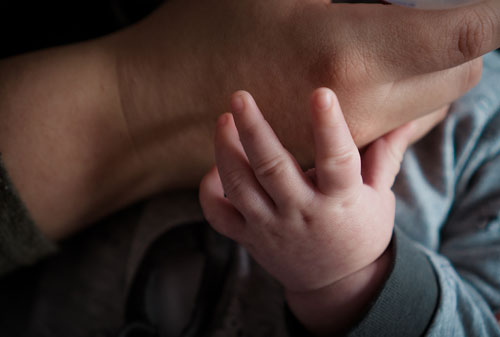
The All Wales Safeguarding Procedures (2019) are for all individuals and agencies working with children and families, or with adults who may pose a risk to children; across professions, agencies and departments; and in the statutory, voluntary and independent sectors.
The procedures are in five parts:
Part 1 gives the context for child protection work, including the key principles that underpin professionals’ work with children and families, and the definitions of abuse and neglect.
Part 2 sets out what people should do if they are concerned that a child is being abused, or if they suspect that there is a risk of abuse.
Part 3 describes the procedures to be followed when a report of child abuse or neglect has been made.
Part 4 provides additional information about the management of particular types of child abuse.
Part 5 contains protocols developed by the All Wales Safeguarding Procedures (2019) Review Group.
Mae Gweithdrefnau Diogelu Cymru Gyfan (2019) yn berthnasol ar gyfer yr holl unigolion ac asiantaethau sy'n gweithio gyda phlant a theuluoedd, neu gydag oedolion sy'n peri risg i blant; ar draws proffesiynau, asiantaethau ac adrannau; ac yn y sectorau statudol, gwirfoddol ac annibynnol.
Mae pum rhan i'r gweithdrefnau:
Mae Rhan 1 yn cyflwyno cyd-destun gwaith amddiffyn plant, gan gynnwys yr egwyddorion allweddol sy'n sail i waith gweithwyr proffesiynol gyda phlant a theuluoedd, a diffiniadau o gam-drin ac egseulustod.
Mae Rhan 2 yn nodi beth ddylai pobl ei wneud os ydynt yn pryderu bod plentyn yn cael ei gam-drin, neu os ydynt yn amau fod perygl o gamdriniaeth.
Mae Rhan 3 yn disgrifio’r gweithdrefnau i’w dilyn ar ôl derbyn adroddiad bod plentyn yn cael ei gam-drin neu ei esgeuluso.
Mae Rhan 4 yn darparu gwybodaeth ychwanegol ar sut i reoli mathau penodol o gamdrin plant.
Mae Rhan 5 yn cynnwys protocolau a ddatblygwyd gan Grŵp Adolygu Gweithdrefnau Diogelu Cymru Gyfan (2019).
Hint 8: Lorem ipsum dolor sit amet, consectetur adipisicing elit. Modi est praesentium earum exercitationem, accusantium molestiae asperiores reiciendis aliquam doloribus, delectus, cumque odio omnis rem, aliquid et. Quisquam eius, incidunt ab.
Awgrymiadau 8: Lorem ipsum dolor sit amet, consectetur adipisicing elit. Modi est praesentium earum exercitationem, accusantium molestiae asperiores reiciendis aliquam doloribus, delectus, cumque odio omnis rem, aliquid et. Quisquam eius, incidunt ab.

This Safeguarding of Vulnerable Groups Act (SVGA) 2006 was passed to help avoid harm, or risk of harm, by preventing individuals who are deemed unsuitable to work with children and vulnerable adults from gaining access to them through their work.
Organisations providing services or personnel to vulnerable groups have a legal obligation to ensure that their recruitment process includes the current necessary checks:
Pasiwyd Deddf Diogelu Grwpiau Hyglwyf 2006 er mwyn helpu i osgoi niwed, neu risg o niwed, drwy atal unigolion sy'n cael eu hystyried yn anaddas i weithio gyda phlant ac oedolion sy'n agored i niwed rhag dod i gysylltiad â nhw drwy eu gwaith.
Mae gan sefydliadau sy'n darparu gwasanaethau neu weithwyr ar gyfer grwpiau agored i niwed rwymedigaeth gyfreithiol i sicrhau bod eu proses recriwtio yn cynnwys y gwiriadau cyfredol angenrheidiol:
Hint 9: Lorem ipsum dolor sit amet, consectetur adipisicing elit. Modi est praesentium earum exercitationem, accusantium molestiae asperiores reiciendis aliquam doloribus, delectus, cumque odio omnis rem, aliquid et. Quisquam eius, incidunt ab.
Awgrymiadau 9: Lorem ipsum dolor sit amet, consectetur adipisicing elit. Modi est praesentium earum exercitationem, accusantium molestiae asperiores reiciendis aliquam doloribus, delectus, cumque odio omnis rem, aliquid et. Quisquam eius, incidunt ab.

The Act came into force on 6 April 2016.
The Act provides the legal framework for improving the well-being of people who need care and support, and carers who need support, and for transforming social services in Wales. The Act:
Daeth y Ddeddf i rym ar 6 Ebrill 2016.
Mae'r Ddeddf yn darparu'r fframwaith cyfreithiol ar gyfer gwella llesiant pobl sydd arnynt angen gofal a chymorth, a gofalwyr sydd arnynt angen cymorth, a gweddnewid y gwasanaethau cymdeithasol yng Nghymru. Mae’r Ddeddf:
Hint 10: Lorem ipsum dolor sit amet, consectetur adipisicing elit. Modi est praesentium earum exercitationem, accusantium molestiae asperiores reiciendis aliquam doloribus, delectus, cumque odio omnis rem, aliquid et. Quisquam eius, incidunt ab.
Awgrymiadau 10: Lorem ipsum dolor sit amet, consectetur adipisicing elit. Modi est praesentium earum exercitationem, accusantium molestiae asperiores reiciendis aliquam doloribus, delectus, cumque odio omnis rem, aliquid et. Quisquam eius, incidunt ab.

This is an Act to improve the public sector response in Wales to violence against women, domestic abuse and sexual violence. It became law in Wales on 29 April 2015.
The purpose of this Act is to improve:
Diben y Ddeddf hon yw gwella ymateb y sector cyhoeddus yng Nghymru i drais yn erbyn menywod, cam-drin domestig a thrais rhywiol. Daeth i rym yng Nghymru ar 29 Ebrill 2015.
Pwrpas y Ddeddf hon yw gwella:
Hint 11: Lorem ipsum dolor sit amet, consectetur adipisicing elit. Modi est praesentium earum exercitationem, accusantium molestiae asperiores reiciendis aliquam doloribus, delectus, cumque odio omnis rem, aliquid et. Quisquam eius, incidunt ab.
Awgrymiadau 11: Lorem ipsum dolor sit amet, consectetur adipisicing elit. Modi est praesentium earum exercitationem, accusantium molestiae asperiores reiciendis aliquam doloribus, delectus, cumque odio omnis rem, aliquid et. Quisquam eius, incidunt ab.

There are five principles which underpin the Mental Capacity Act:
In order to protect those who lack capacity and to enable them to take part as much as possible in decisions that affect them, the following statutory principles apply:
Mae'r Ddeddf Galluedd Meddyliol yn seiliedig ar bum egwyddor:
Er mwyn amddiffyn pobl â diffyg galluedd ac er mwyn eu galluogi i gymryd cymaint o ran â phosibl yn y penderfyniadau sy'n effeithio arnynt, mae'r egwyddorion statudol canlynol yn gymwys:
Hint 12: Lorem ipsum dolor sit amet, consectetur adipisicing elit. Modi est praesentium earum exercitationem, accusantium molestiae asperiores reiciendis aliquam doloribus, delectus, cumque odio omnis rem, aliquid et. Quisquam eius, incidunt ab.
Awgrymiadau 12: Lorem ipsum dolor sit amet, consectetur adipisicing elit. Modi est praesentium earum exercitationem, accusantium molestiae asperiores reiciendis aliquam doloribus, delectus, cumque odio omnis rem, aliquid et. Quisquam eius, incidunt ab.
Fill in the empty boxes to complete the paragraph.
Llenwch y bocsys gwag i gwblhau'r paragraff.
The purpose of safeguarding legislation and policies includes:
The purpose of safeguarding legislation and policies includes:
You scored … out of . Move some of the terms around to try to improve your score.
Well done. You scored … out of .
You scored … out of . Click reset to try the activity again.
You scored … out of . Move some of the terms around to try to improve your score.
Well done. You scored … out of .
You scored … out of . Click reset to try the activity again.
Mae diben deddfwriaeth a pholisïau diogelu yn cynnwys:
Mae diben deddfwriaeth a pholisïau diogelu yn cynnwys:
Eich sgôr yw … allan o . Symudwch rhai o'r termau o gwmpas i geisio gwella eich sgôr.
Da iawn. Eich sgôr yw … allan o .
Eich sgôr yw … allan o . Cliciwch ‘ailosod’ er mwyn rhoi cynnig arall ar y gweithgaredd.
Eich sgôr yw … allan o . Symudwch rhai o'r termau o gwmpas i geisio gwella eich sgôr
Da iawn. Eich sgôr yw … allan o .
Eich sgôr yw … allan o . Cliciwch ‘ailosod’ er mwyn rhoi cynnig arall ar y gweithgaredd.
Hint 13: Lorem ipsum dolor sit amet, consectetur adipisicing elit. Modi est praesentium earum exercitationem, accusantium molestiae asperiores reiciendis aliquam doloribus, delectus, cumque odio omnis rem, aliquid et. Quisquam eius, incidunt ab.
Awgrymiadau 13: Lorem ipsum dolor sit amet, consectetur adipisicing elit. Modi est praesentium earum exercitationem, accusantium molestiae asperiores reiciendis aliquam doloribus, delectus, cumque odio omnis rem, aliquid et. Quisquam eius, incidunt ab.
Hint 14: Lorem ipsum dolor sit amet, consectetur adipisicing elit. Modi est praesentium earum exercitationem, accusantium molestiae asperiores reiciendis aliquam doloribus, delectus, cumque odio omnis rem, aliquid et. Quisquam eius, incidunt ab.
Awgrymiadau 14: Lorem ipsum dolor sit amet, consectetur adipisicing elit. Modi est praesentium earum exercitationem, accusantium molestiae asperiores reiciendis aliquam doloribus, delectus, cumque odio omnis rem, aliquid et. Quisquam eius, incidunt ab.